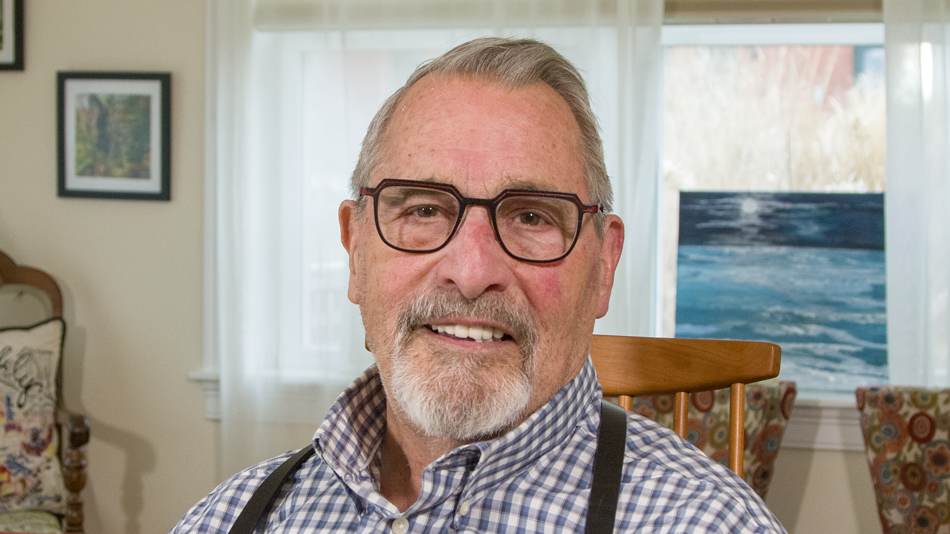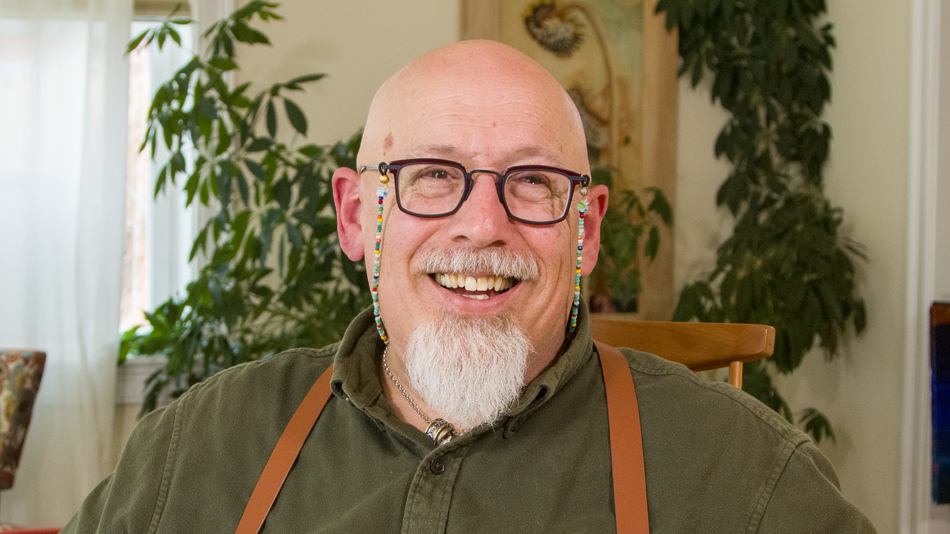My name is Peter M. Krask. I am from Frederick, Maryland.
It was my junior year at a large state university and I lived on campus in sort of what was known as the, like, the party dorm. I was clearly a bad fit for it. I’d lived there for three years. And while I was there, a sort of subtle kind of harassment started, which involved me being gay. And at the time, I was not out to myself or out to anyone else. It originally started just as whispers and then became very aggressive.
So if I went into the bathroom, someone would say, “Don’t go in there. The fag’s in there.” Or if I went into the shower, somebody would be, you know, be sure not to go in the shower. “You don’t know what will happen.”
And I was spending a lot of time with a friend of mine, who – another man – who, I’m sure, you know, we were in love with each other, but neither one of us were out. And he was manic depressive. We were spending a lot of time together and he was going through a breakdown. Because we spend so much time together, the guys on my hall assumed all sorts of things about why we would be spending so much time together in my room, when basically I was trying to take care of him.
He tried to attempt suicide and I was the one who had to commit him to the hospital. The next morning, when I came back to my room, my door had been vandalized. And it was vandalized with a life-sized depiction of two men having anal sex in indelible purple marker. No one seemed to care. No adults noticed. The R. A. didn’t say anything. There was no way to sort of intervene. It was just sort of “let boys be boys”
and this is what happens.
I was so puzzled just by the sheer meanness of it and the fact that they had no idea what was really happening and that my friend was so sick and that I had to take him to the hospital. I just couldn’t understand it on a fundamental level.
So, you know, this was 1987: pre-internet, pre-cellphone, pre-social media. There was no sort of immediate way to address this except for the school newspaper, which was the main source of information for the student body, which everybody read. And I just had the thought: I’m gonna write something about this.
So the content of the editorial was a description of my experience, starting from the whisper campaign to some of, you know, examples of just craziness. My main question in the editorial was, “I don’t understand why you guys care so much and why is it any of your business.” I never came out in the piece because to me that seemed irrelevant. It was just a fundamental human dignity question.
So the day was published, some of my friends sort of very kindly spent the day with me and came back to my dorm with me. And strangely nothing happened. There was no push-back there was no – the stakes were not escalated in anyway. But what did happen was the harassment stopped and it stopped immediately. No one ever said anything to me. No one ever apologized. There was no conversation about it, but it did stop.
Looking back on that now, one of the things I’m struck by and sort of how much the world has changed, not a single adult said anything to me either. Not one of my teachers. No one from the school reached out to me. The resident assistant never knocked on my door and inquired what happened.
But I think, you know, the real take-away for me was learning that I had agency, I think sometimes there is a perception, like, that you can’t do anything or that all you can do is fall over in a faint if somebody looks at you the wrong way.
We do have power and there is a way to respond and there is a way to stand up for yourself and claim your dignity even if it’s not immediate in the situation. If it’s just telling a story, that counts, because ultimately telling the story is what changed it.
I would not wish that experience on anyone. It was a terrible experience. Nor would I trade the lesson I learned from that and the understanding of the power of words in the world and the power of communication in the world. So even though it wasn’t Twitter, even though it wasn’t social media, with snail mail and a newspaper and all of that old technology, it still worked.








Share